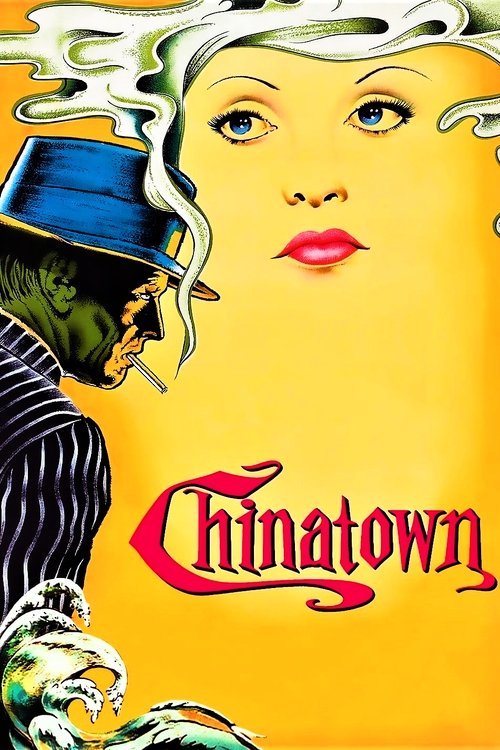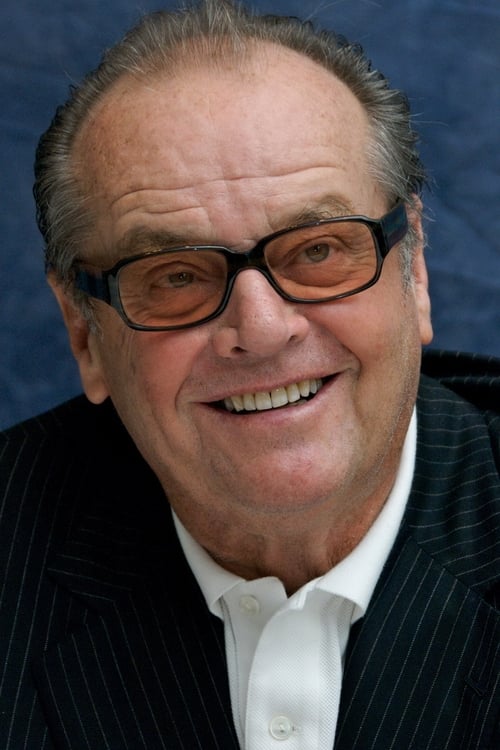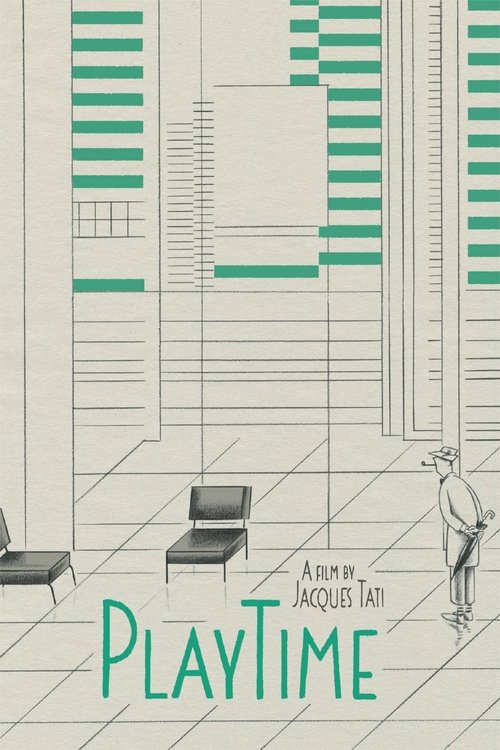
Chinatown
Private eye Jake Gittes lives off of the murky moral climate of sunbaked, pre-World War II Southern California. Hired by a beautiful socialite to investigate her husband's extra-marital affair, Gittes is swept into a maelstrom of double dealings and deadly deceits, uncovering a web of personal and political scandals that come crashing together.
Dialogues from Movie Chinatown
Quotes from Movie Chinatown
Sound Tracks from Chinatown by Jerry Goldsmith
Chinatown
Chinatown by Jerry Goldsmith, Main theme throughout the film
The Water and the Land
The Water and the Land by Jerry Goldsmith, Plays during the scenes depicting water rights
Jake's Theme
Jake's Theme by Jerry Goldsmith, Used in scenes focusing on the protagonist, J.J. Gittes
Download App
Memorable Scenes from Movie Chinatown
Evelyn's Revelation
As Jake Gittes confronts Evelyn Mulwray about the truth of her past, the tension between them boils. The moment peaks when Evelyn reveals that her father is the man who is both her husband and her father. This shocking truth alters Jake's perception of Evelyn completely, leading to heartbreak for both characters and a sense of impending doom. After this, Jake realizes how deeply he has been drawn into a web of lies and corruption, unsure of whom to trust. This moment profoundly impacts Jake’s arc, illustrating his struggle between love and moral duty.
Context: Leading up to this moment, Evelyn has been shrouded in mystery, and Jake is trying to explore her connection to a string of murders. Their relationship has grown layered, filled with tension and attraction, making this revelation all the more jarring.
The Water Plot Unfolds
Jake uncovers a sinister plot involving the city’s water supply by the wealthy and corrupt Noah Cross. The tension hits a peak when Jake realizes the depth of the conspiracy he’s up against. The revelation that the water supply is being manipulated to benefit the rich hits hard, showcasing the theme of exploitation. This scene culminates in Jake feeling isolated and determined, setting the stage for his eventual confrontation with Cross.
Context: Falling action leads Jake to investigate the Murrieta Valley water. The build-up includes scenes of deception where Jake initially dismisses the conspiracy, only to find evidence that forces him to confront reality.
The Famous 'She’s My Sister' Scene
The moment that hits hard when Evelyn admits to Jake about her daughter, she says, 'She’s my sister... she’s my daughter.' The shockwave of this revelation leaves Jake speechless. The visual impact of Evelyn’s despair against the backdrop of chaos ahead brings a heavy emotional weight. This moment encapsulates the tragic intertwining of the characters’ fates, leading to a deeper exploration of family and betrayal.
Context: The build-up centers around Jake trying to get to the bottom of Evelyn's past, as he grows more determined and invested in her well-being, making her revelation all the more devastating.
The Final Confrontation
The climactic encounter between Jake and Noah Cross where truths are laid bare. The pivotal moment occurs when Cross chillingly states, 'You may think you know what you're doing, but you don't.' The foreboding tone and atmosphere make clear just how deep the corruption runs. This confrontation signals Jake’s defeat and the film's grim resolution as he realizes the futility of his fight against the corruption.
Context: Leading to this moment, Jake has fought bravely against the corruption but is faced with unsettling truths about power and complicity. The emotional stakes are at an all-time high.
The Eye Slice
The shocking violence of the eye wound delivered by Cross when Jake visits him. The moment sends shockwaves through the film, and the visual horror adds a layer of urgency to Jake’s quest. This scene acts as a reminder of the physical violence accompanying the dark world of deceit he’s chosen to investigate.
Context: Prior to this scene, tension escalates as Jake’s investigation brings him closer to danger. The brutality signifies what is at stake, making viewers acutely aware of the peril he faces.
The Car Crash
A turning point in the film when Jake almost gets killed in a car crash. The high-speed chase peaks in intensity as viewers sense the immediate danger. This event pushes Jake further into the depths of the conspiracy and foreshadows the tragic ending ahead.
Context: This moment builds on the previous investigations and threats against Jake as he becomes more entangled with the dark realities lurking in the city.
Finding the 'Real' Evelyn
Jake's discovery of the real Evelyn Mulwray buried beneath layers of deception is emotionally powerful. Jake’s painful realization when he uncovers her true fate prompts a rage-filled outburst, intensifying his tragic character arc. The aftermath leaves him shattered, marking a decisive low point in the film.
Context: Leading up to this reveal, Jake has been in a state of emotional turmoil trying to unravel complexities around Evelyn, making this moment even more painful.
Noah Cross's Manipulations
Cross’s initial interactions with Jake hint at his manipulative nature. The moment peaks when Cross coolly brushes aside Jake's inquiries, showcasing his power and dominance. The chilling exchange offers a glimpse into the dark world of the elite, revealing how deeply he has his claws in the city. This scene sets the tone for the movie's ongoing battle of wills.
Context: This interaction is pivotal as Jake begins to understand that he’s up against a much larger system. Cross’s arrogance effectively highlights the movie’s themes of power and control.
Jake’s Loss of Faith
A turning point for Jake, where he admits he is losing faith in the fight against corruption. The moment is laden with bitterness and disillusionment, showcasing the character’s evolution from a confident detective to a man grappling with despair. This shift enhances the film's tragic arc.
Context: Prior events of betrayal, revelations, and violence lead Jake to this moment of vulnerability, serving to deepen the narrative of loss.
The Twilight Shroud
The film's closing scene echoes the motif of inevitable loss. Jake’s desperate plea feels weighty against the backdrop of the city’s skyline. The foreboding visual of Twilight, combined with the phrase “This is Chinatown,” evokes a sense of resignation to fate’s cruelty. This moment resonates with audiences as it coolly illustrates the theme of cyclical despair.
Context: Building up to this moment is the accumulation of Jake's losses throughout the film. The ending feels like a somber conclusion to his unyielding fight.
The Garden of Secrets
The scene at the Mulwray estate reveals hidden truths about the water corruption scheme. As Jake discovers the vast network behind it, tension rises, and dread grows. The visuals of the sprawling garden juxtaposed with dark secrets amplify the narrative’s complexity.
Context: Leading up to this point, Jake has been following a trail of small clues that ultimately link back to Cross, preparing viewers for this moment of revelation.
Evelyn's Despair
A moment that captures Evelyn's emotional breakdown as she grapples with her split loyalties. The heartbreaking plea for help highlights her tragic circumstances, allowing viewers to empathize deeply with her character. The poignant visuals and powerful expression of inner turmoil engrave this moment in memory.
Context: Previously, Evelyn has been a wisp of mystery. This breakdown showcases her vulnerability, adding layers to an otherwise enigmatic persona.
The Family Reveal
The shocking reveal about the complex relationship between Evelyn and Cross is a pivotal twist where familial bonds intertwine with betrayal. The atmosphere thickens as revelations mount, showcasing the theme of hidden truths. This moment brings emotional conflict to the forefront.
Context: Leading up to this moment, Jake's investigations set the stage for unraveling the intricate web of relationships, magnifying the weight of familial secrets.
Murder in the Shadows
In a dark alley, where Jake stumbles upon a murder related to his case. The peak tension and chilling visuals evoke a sense of danger omnipresent in the plot. The aftermath leaves Jake spiraling deeper into perilous territory.
Context: This scene builds upon the escalating stakes of Jake's investigation, as he confronts the tangible consequences of the corruption he's trying to unveil.
The Reveal of Cross's True Intent
When Jake finally confronts Noah Cross about his grand scheme involving water and power, the tension peaks as Cross reveals his cold and calculating intentions. The impact of this moment alters Jake's perspective of the stakes in the game they play, deepening the thematic element of greed.
Context: This revelation arises from Jake's dogged determination to uncover the truth, setting the stage for his ultimate conflict with Cross.
Under the Surface
This moment captures Jake's realization of the truth hiding beneath the surface of what appears to be a simple case. When he understands the far-reaching ramifications of the water plot, it becomes apparent how small decisions lead to corruption at the highest level. This intellectual discovery propels the story forward.
Context: The build-up involves Jake piecing together clues, tugging on the threads of family secrets unraveling the intricate plot before him.
Caught in the Crossfire
An intense moment when Jake is caught between rival factions, highlighting his isolation in this fight against corruption. The body language and dramatic visuals create a tense atmosphere that brings a heavy epic drama to the narrative, showcasing the precariousness of Jake’s situation.
Context: Following a series of investigative leads, Jake walks into a volatile scenario that showcases how far the corruption extends, adding pressure to his already beleaguered position.
A Woman's Influence
When the female characters in the film reveal their strengths against male oppression, viewers witness the power dynamics at play. The emotions swing from pride to pity, as the audience sees how strong women still find themselves oppressed. This complexity is a significant part of the film’s critique of society.
Context: This moment reflects the interwoven fates of all characters, signifying the broader themes of gender and power struggles that permeate the narrative.
Crisis of Conscience
As Jake wrestles with his moral integrity, the moment comes when he must decide whether to compromise his values for personal gain. This struggle resonates with the audience, prompting genuine reflection on ethics amidst corruption. His breakthroughs bring tension to the narrative, questioning the definition of justice.
Context: Leading to this conflict, Jake faces escalating choices that test his character and the morality of his profession.
The Return to Chinatown
Jake's trip back to Chinatown serves as a haunting reminder of everything that has unfolded. The pivotal moment occurs when he encounters memories and consequences of his choices. The emotional weight of nostalgia mingles with regret, culminating in a haunting acknowledgment of his situation.
Context: This return is laden with memories and confronts Jake with the reality of where his investigation has led him, bringing closure to key character arcs.
Chinatown's Reflection
The film closes with the somber realization that the cycle of corruption will continue. When Jake says, 'Forget it, Jake, it's Chinatown,' it reinforces the futility of resisting the established order. This haunting statement echoes throughout the film, leaving the audience with a deep sense of unresolved tension.
Context: This powerful closing moment brings the themes of powerlessness and cyclical nature of corruption full circle, solidifying the film's enduring impact.
Download App







